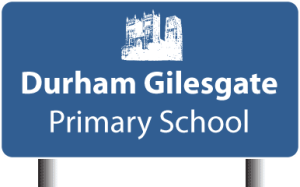Intent
At Durham Gilesgate Primary School our intention is to teach the requirements of The National Curriculum for history in a way that stimulates children and helps them develop critical thinking skills. We recognise that the history curriculum has a discrete body of knowledge; children will learn about key events and periods in British history and how Britain has both influenced and
been influenced by the events in the wider world. Children will also learn about past non European civilisations and will gain an understanding of the rise and fall of empires.
Through this knowledge we intend that children will develop an understanding of historical concepts such as ‘continuity and change, cause and consequence, similarity, difference and significance’ children will also develop subject specific vocabulary. Historical knowledge, conceptual understanding and subject specific vocabulary will help us to teach children enquiry and critical thinking skills and it is our intention that children will gain historical perspective and make links between civilisations, past events and other subjects.
Implementation
At Durham Gilesgate Primary School we have a history curriculum which meets the requirements of the National Curriculum. The curriculum organisation History is through teaching in half term blocks, one each term, across the year; so that children can achieve depth in their learning. Teachers have identified the key knowledge and skills for each blocked topic and consideration has been given to ensure progression across topics throughout each year group and then between each year group across the school. Thus the curriculum is designed to develop knowledge and skills that are progressive, as well as transferable.
There are clearly planned cross-curricular links with other subjects such as geography (for example; mapping skills in the local area and historical enquiry about the street names) and English as we expect children to transfer skills and write as historians. Our history curriculum is not taught chronologically but instead, taught with the needs of our children in mind. Timelines
in every classroom secure the teaching of chronology and references and connections are made in lessons to previous periods studied.
At Durham Gilesgate Primary School, History is taught through enquiry-based questions which encourage thinking skills, independence and questioning in our children. We adapt planning and use resources and opportunities where available, including visits and visitors. Our history curriculum inspires our children and raises their aspirations which is one part of our curriculum driver Heritage and Opportunity. The curriculum drivers ‘values’ and ‘grown mind-set’ underpin much of the history curriculum where children are developing enquiry and critical thinking skills.
For example, the values of tolerance and equality will be explored when children learn about Anne Frank.
Impact
We expect that the majority of children will achieve at age related standards in history at the end of each year. We recognise that some children may not achieve this standard but we will expect that they have made good progress from their starting point. We also recognise that some other children will exceed age related standards and we will have deepened learning for these children.
Children’s knowledge and historical skills will build progressively over lessons and both teachers and parents will be able to see this in their history books. Similarly, their work will reflect the new subject specific vocabulary that they have learned. By talking with children, we will be able to gauge their understanding and application of enquiry skills and their ability to make links between subject knowledge learned over time.
